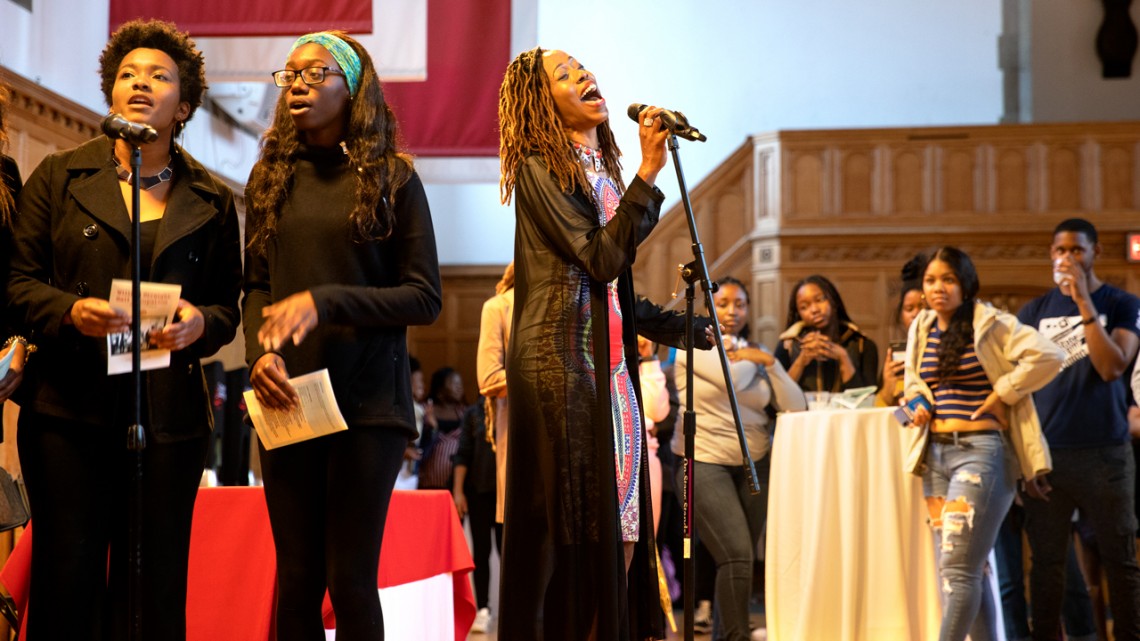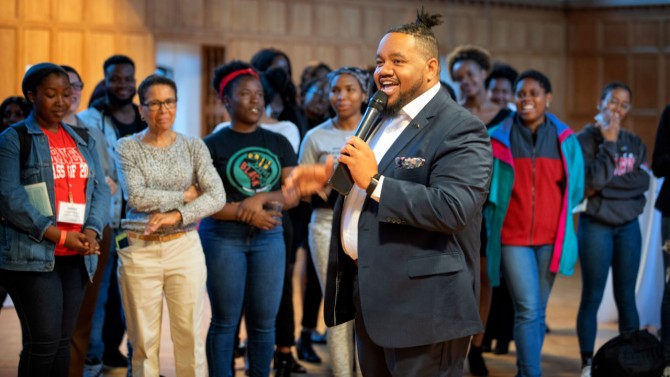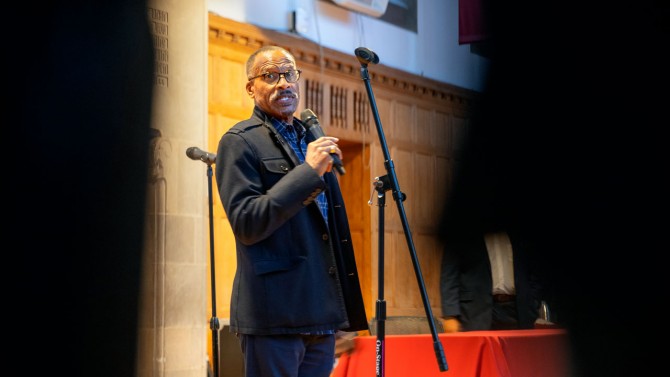
Event co-organizer Wilma Ann Anderson ’92, center, sings with members of the Baraka Kwa Wimbo Gospel Ensemble April 19 at Willard Straight Hall.
Occupation anniversary inspires continued progress
By Matt Hayes
On April 19, 1969, Cornell students began a 36-hour occupation of Willard Straight Hall in protest of racial issues on campus. Fifty years to the day, faculty, staff, students and alumni gathered at the Straight to reflect on the legacy of the occupation and the people involved.
“Talks of racial injustice and campus climate, in many ways, started right here at Cornell, thanks to the dedication and drive of students at that time,” said Carlton Smith, assistant director of Student Development Diversity Initiatives and co-organizer of the event. “We can’t forget that legacy.”
The reception included photos, remarks and musical selections performed by Baraka Kwa Wimbo Gospel Ensemble.
Marcellai Moisili ’21, who browsed historical photos of students gathered on the Arts Quad and at Barton Hall, said she was struck by the energy and determination apparent in the photographs.
“Seeing the individual people and seeing it in the context of our campus, you see the many black people who have walked this path before you,” said Moisili. “They paved the way for us to be here and to not feel threatened; I thought that was amazing to see.”
A day after his keynote presentation with fellow alumnus Harry Edwards, Ph.D. ’73, Frank Dawson ’72, one of the protestors who led the occupation, spoke to students at the reception.
Meeting Dawson and hearing directly from him was a powerful experience for Esuvat Bomani ’21. “He represents the golden age of black history in America: so poised, so powerful and so determined,” she said. “I hope those same characteristics carry on into our generation.”
Smith, who mentors students and advocates for diversity at Cornell, said he sees an enduring spirit of activism among today’s students. Cornell students are skilled at organizing and building coalitions to address systemic change, he said, and that the foundation for the gains were built from fearlessness displayed by students in the 1960s and ’70s.
“These events are a great way to celebrate, memorialize and reflect on the importance of the movement and what our students accomplished then,” Smith said. “It’s a great way to learn from our history and also to remind us we are still pushing forward.”
Barron Williams ’19, a co-organizer of the reception, said that hearing the experiences of those who came before stirred up feelings of pride. “Activism establishes a sense of agency and purpose within individuals and allows them to discover what’s really important to them: to find their voice, their energy, and to work toward a greater good in the future,” he said.
Students left feeling invigorated by the experience. “I want to leave a legacy like the one that was left to me: To be always fighting for those who are marginalized,” said Renelle Mensah ’21. “The only thing we can keep doing is keep moving forward while we are here and then pass it along to the next generation.”
Media Contact
Get Cornell news delivered right to your inbox.
Subscribe



